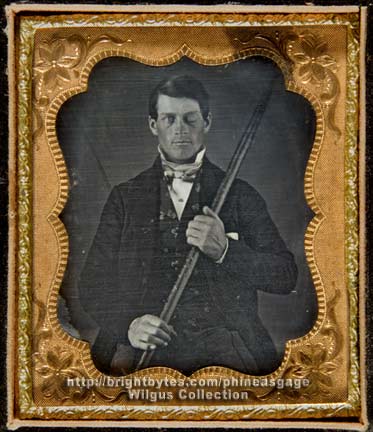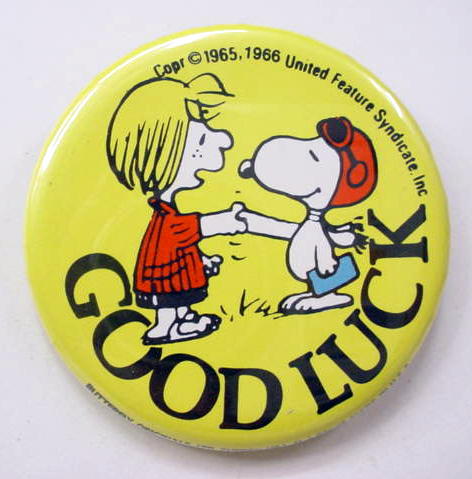so we have a convicted child porn watcher. he is fairly true to type. He is middle aged, unmarried, lonely. He is ineffectual and unable to maintain normal romantic attachments. Not because he is particularly repulsive, just because he hasn't quite sharpened the skills necessary. He developed a bit of an OCD quality to his computer and internet use. At one stage making sure he had every image or page of a particular topic "covered" and then another topic. One month it was Australian warships, the next it was organic gardening. I'm not kidding.
SO then it was pornography. This time it was "the worst possible thing" he could look at. In some ways he continued to look at it to make sure he was still horrified by it. A bit like poking a tooth decay hole to make sure it still hurts. He handed over his credit car details and purchased images.
Needless to say he was eventually tracked down and sent to me for treatment. We needed to deal the sexual interest of course, with social isolation, with alcohol abuse. We also needed to deal with the guilt he felt. He was completely wracked by it because his activity was , by definition, "the worst possible thing" he could look at. That why he did it. Weird concept to get your head around, I know.
One very important part of treatment was identifying the guilt and doing something about it. As it was it was just contributing to self loathing and more drinking. we looked at the idea of making restitution. Of "balancing out the universe" and doing something good for others that no one else knows about. He loved the idea. He felt some relief. We settled on anonymous blood giving to the blood bank. He could do something good that no-one need know anything about, to balance the anonymous bad stuff that no-one should have known anything about. Kind of neat solution?
|
|
|
|---|
This past Friday was the 150th anniversary of the death of one of psychology's all-time favorite subjects, Phineas Gage. Today in Vermont (as I learned via ScienceBlogs) the Cavendish Historical Society is holding a walking tour of famous sites related to Gage including the accident site itself, the home of Dr. Harlow (the surgeon who treated Gage) and the house that Gage was taken to after the accident.
The newsletter of the CHS published earlier this month gives some great historical background to Gage's accident, including this reference from the local newspaper on the following day:
Horrible Accident: As Phineas P. Gage, a foreman on the railroad in Cavendish, was yesterday engaged in tamping -for a blast, the powder exploded, carrying an iron instrument through his head an inch and a fourth in circumference, and three feet and eight inches in length, which he was using at the time. The iron centered on the side of his face, shattering the upper jaw and passing back of the left eye and out at the top of the head.Also this week was a post on Mind Hacks by Vaughan Bell who found a recent journal article with more details about Gage's life after the accident. Don't just settle for "Gage was no longer Gage"; as Malcolm Macmillan and Matthew L. Lena published in Neurophysiological Rehabilitation, Gage continued to work for the twelve years following the accident, seven of them as a driver in Chile, and at one point was examined by a doctor who found "no impairment whatever." The Mind Hacks post has been updated to include a link to the actual journal article as well.
The most singular circumstance connected with this melancholy affair is that he was alive at two o’clock this afternoon, and in full possession of his reason, and free from pain. Ludlow Vt. Free Soil Union Sept. 14, 1848
P.S. Coming this summer: a post on the top ten subjects in psychology? I'm thinking Gage, Little Albert, the Bobo doll, Piaget's three kids, Lorenz' geese, Zimbardo's prisoner #819, etc. Who would you nominate?
-- posted by Steve
 A full-time teaching position for the 2010-2011 school year has opened up at Clintonville High School in Clintonville, WI (35 miles west and slightly north of Green Bay). The assignment includes: AP Psychology, Sociology, World Studies and US History.
A full-time teaching position for the 2010-2011 school year has opened up at Clintonville High School in Clintonville, WI (35 miles west and slightly north of Green Bay). The assignment includes: AP Psychology, Sociology, World Studies and US History.
Full details of the job can be found at http://ww2.wisconsin.gov/state/employment/app?COMMAND=gov.wi.state.cpp.job.command.ShowJobDetails&selectedJob=201005121339521476804 Applications must be sent by May 28th.
If you have information on a high school teaching position which includes psychology that we can post on the THSP Blog, please contact Kent Korek at kkorek@germantown.k12.wi.us. Best of luck to everyone looking for an opening.
Below is the latest news from Emily Leary (Eleary@apa.org) regarding the Teachers of Psychology in Secondary Schools (TOPSS).
2010 TOPSS Committee Elections
The mission of the APA Committee of Teachers of Psychology in Secondary Schools (TOPSS) is to promote the scientific nature of introductory and advanced high school psychology; to meet curricular needs of secondary school teachers; and to provide opportunities for high school students to be recognized and rewarded for their academic excellence. If you would like to become more involved in TOPSS, we encourage you to consider serving on the TOPSS Committee. TOPSS is especially interested in encouraging individuals from diverse backgrounds (including diversity in race/ethnicity, gender, ability/disability, sexual orientation, age, and religion) to consider running for TOPSS Office. In 2010, the following three elected positions will be filled:
- Chair-Elect
- Member-at-Large (2)
The Chair position is a three-year position and the Member-at-Large positions are each two-year positions. Please consider nominating a colleague who would make a positive impact. We encourage teachers to consider volunteering to be a candidate for the TOPSS Election Ballot. Nomination materials should be submitted by July 1, 2010. For more information, visit http://www.apa.org/ed/precollege/topss/call-for-nominations.aspx.
2010 APA TOPSS Excellence in Teaching Award Recipients
The TOPSS Committee congratulates William James of
2010 APA TOPSS Scholars Essay Competition Winners
The TOPSS Committee congratulates the student winners of the 2010 APA TOPSS Essay Competition. Sabina Babar of
Posted by Kent
 As many of you are painfully aware, there are a large number of school districts across the country laying off staff. In some places hundreds of teachers are being given pink slips.
As many of you are painfully aware, there are a large number of school districts across the country laying off staff. In some places hundreds of teachers are being given pink slips.
We here at the Teaching High School Psychology Blog would like to do what we can to help connect teachers with job openings. If anyone is aware of a teaching posting which includes psychology as part of the assignment, please send the information to Kent Korek at kkorek@germantown.k12.wi.us. I will then post the information on the THSP blog.
In the AP Courses and Exams section of the AP Central website (http://apcentral.collegeboard.com/apc/Controller.jpf), you will find all of the AP Psychology Free Response Questions since 1999 along with various other documents pertaining to the FRQs. Many people have difficulties finding the documents from 1999-2002 as they are on a different web page. To make it easier for teachers, below you will find links to the AP Central documents. Please report any faulty links to Kent Korek at kkorek@germantown.k12.wi.us
2010 (Please note: some of the below items have not yet been published)
Free Response Questions 1 & 2
FRQ Scoring Guidelines (Rubrics)
Student Performance Q&A
FRQ Scoring Statistics
Sample Response Question 1
Sample Response Question 2
Overall Grade Distribution
2009
Free Response Questions 1 & 2
FRQ Scoring Guidelines (Rubrics)
Student Performance Q&A
FRQ Scoring Statistics
Sample Response Question 1
Sample Response Question 2
Overall Grade Distribution
2008
Free Response Questions 1 & 2
FRQ Scoring Guidelines (Rubrics)
Student Performance Q&A
FRQ Scoring Statistics
Sample Response Question 1
Sample Response Question 2
Overall Grade Distribution
2007
Free Response Questions 1 & 2
FRQ Scoring Guidelines (Rubrics)
Student Performance Q&A
FRQ Scoring Statistics
Sample Response Question 1
Sample Response Question 2
Overall Grade Distribution
2006
Free Response Questions 1 & 2
FRQ Scoring Guidelines (Rubrics)
Student Performance Q&A
FRQ Scoring Statistics
Sample Response Question 1
Sample Response Question 2
Overall Grade Distribution
2005
Free Response Questions 1 & 2
FRQ Scoring Guidelines (Rubrics)
Student Performance Q&A
FRQ Scoring Statistics
Sample Response Questions
Scoring Commentary on Sample Response Questions
Overall Grade Distribution
2004
Free Response Questions 1 & 2
FRQ Scoring Guidelines (Rubrics)
Student Performance Q&A
FRQ Scoring Statistics
Sample Response Question 1
Sample Response Question 2
Scoring Commentary on Sample Response Questions
Overall Grade Distribution
2003
Free Response Questions 1 & 2
FRQ Scoring Guidelines (Rubrics)
Student Performance Q&A
FRQ Scoring Statistics
Sample Response Question 1
Sample Response Question 2
Scoring Commentary on Sample Response Questions
Overall Grade Distribution
2002
Free Response Questions 1 & 2
FRQ Scoring Guidelines (Rubrics)
Student Performance Q&A
FRQ Scoring Statistics
Sample Response Question 1
Sample Response Question 2
Scoring Commentary on Sample Response Questions
Overall Grade Distribution
2001
Free Response Questions 1 & 2
FRQ Scoring Guidelines (Rubrics)
Student Performance Q&A
Sample Response Question 1
Sample Response Question 2
Scoring Commentary on Sample Response Questions
2000
Free Response Questions 1 & 2
FRQ Scoring Guidelines (Rubrics)
Sample Response Question 1
Sample Response Question 2
1999
Free Response Questions 1 & 2
FRQ Scoring Guidelines (Rubrics)
Sample Response Question 1
Sample Response Question 2
Scoring Commentary on Sample Response Questions
I know this has taken a while. Things have been very busy at Peninsular Psychology. We have moved into a new sunny little house with polished floor boards and lots of room. We are all in love with it - our clients especially.
So back to work.
I was confronted only recently with the dilemmas of leaving a violent marriage. She put up with his controlling violence for years. Ended up sleeping with the kids in one room with a chair against the door. He gave her no money and no access to the car. They lived on a country property and he cut off the phone. Eventually she was discovered by a community service. The women who came to her rescue assisted her to leave with her kids. The settled her in a new house - happy days.
So the interesting twist is that she has no more access to anything in her previous home. her ex changed the locks and it has now become "a civil matter" so of no interest to police. She and the kids had to leave with nothing. They are safe but destitute. he of course pays no child support and she has to deliver the kids to him once a week, despite their tears.
I'm left thinking, there has got to be a better way. They must be a way to remove the offender and leave the family in the home. There must be a way to do this immediately through he criminal justice system without relying on the often two year process of family law. There must be a way to avoid this mess.
Trust me, psych teachers -- give the above video a try. Thanks to ScienceBlogs.com for first posting this!
If you're interested in learning more, check out invisiblegorilla.com -- Christopher Chabris and Daniel Simons have a new book on the subject of attention coming out this week.

--Posted by Steve
 The above infographic is from GOOD Magazine and displays the 10 most prescribed psychiatric drugs in the U.S. in 2009. More drugs were prescribed than there are Americans!
The above infographic is from GOOD Magazine and displays the 10 most prescribed psychiatric drugs in the U.S. in 2009. More drugs were prescribed than there are Americans!
Here are some other psych-related infographics: How to trick your brain (Boston.com)
How to trick your brain (Boston.com) Which countries are the happiest? (GOOD)
Which countries are the happiest? (GOOD)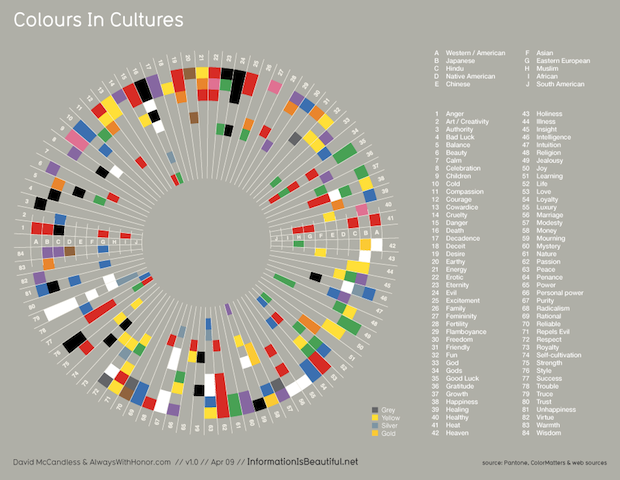 How colors are perceived in ten countries (Information is Beautiful)
How colors are perceived in ten countries (Information is Beautiful)
And don't forget, before putting too much faith in an inforgraphic, to note this warning.
--posted by Steve
In case you and your students need a little break after the AP! Maybe we can have our students work on more psychology posters like these over the next month?
You can find more of these at http://fakescience.tumblr.com/. --posted by Steve
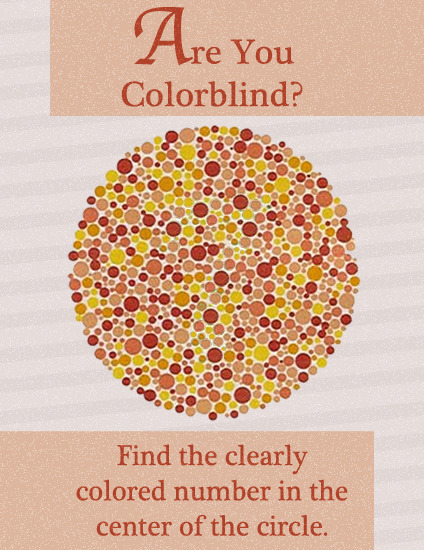
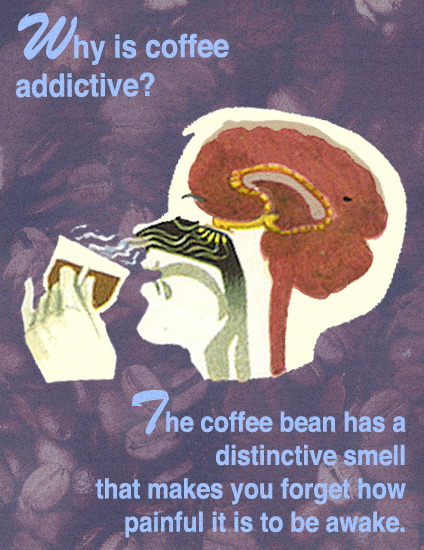

I just discovered that the excellent Dr. Dana Dunn (long-time AP psychology exam reading Table Leader, wonderful college psych teacher, and all around great guy) writes a blog about teaching psychology for the magazine Psychology Today. The blog is called Head of the Class, and I'm just starting to dig into the archives. The current post is about grading, and Dana gets into the topic in a funny and useful way, I think. I suspect Dana would love comments from high school psych teachers (I added one!).
posted by Rob McEntarffer
With the AP Psychology Exam just one week away, many of us are reaching the end to a long journey that started last September. Below are some of the "last minute" items I tell my students. Note: This listing is basically the same as the last minute items I posted last year at this time.
General Information:
- Tuesday May 11, 2010 in the afternoon
- Bring pencils with erasers and blue or black pens
- Bring a watch that does not beep
- Do not wear any psychology related clothing
- Do not bring anything else: books, papers, calculators, cell phones, etc.
- 100 multiple choice questions
- 70 minutes
- 2/3 of the overall grade
- A-E Answers
- Names, charts, graphs, drawings are all possible
- 1/4 point adjustment for guessing
- 2 required Free Response (essay) Questions
- 50 minutes
- 1/3 of the overall grade - 1/6 of grade for each question
- Points are given for correct responses not taken away for incorrect material
- Points can only be removed if one part of an answer contradicts another part
- Read through both questions before doing anything else
- Think through the answer before starting to write
- Write an outline or notes in the test question booklet
- Don’t be afraid to cross something out, if needed
- Write in sentences - DO NOT OUTLINE OR BULLET YOUR ANSWER.
- Be as complete as possible, but keep to the point.
- Watch the time. Don’t get caught short on essay #2
- Structure the answer following the structure of the question
- Do not discuss the multiple-choice section with anyone
- Do not discuss the free response questions for 48 hours. The general rule of thumb is wait until the questions have been posted on the College Board website
- Do NOT post, text, email etc. anything about the exam on the Internet, especially on Facebook, Twitter or other social networks
- Do not come and visit me between the multiple choice section and free response section
Just in time for Mother's Day comes a French documentary called Babies. From the website's synopsis:
Directed by award-winning filmmaker Thomas Balmès, from an original idea by producer Alain Chabat, Babies simultaneously follows four babies around the world – from birth to first steps. The children are, respectively, in order of on-screen introduction: Ponijao, who lives with her family near Opuwo, Namibia; Bayarjargal, who resides with his family in Mongolia, near Bayanchandmani; Mari, who lives with her family in Tokyo, Japan; and Hattie, who resides with her family in the United States, in San Francisco.Sounds like this is going to be a MUST for future development units! If you see the movie soon and want to post a review, please let me in know in the comments and you can have your own guest post!
-- Posted by Steve
Nice! This song (above) was created by a real-life AP Psychology teacher and hit the trifecta today of being featured on Freakonomics, Boing Boing and was Tweeted by the insanely great @vaughanbell. The teacher is Brad Wray and he teaches at Arundel High School in Gambrills Maryland. Well done Mr. Wray! I've send him an e-mail and hope to post an interview with him soon.
Enjoy as you're reviewing for the AP next week ...
-- Posted by Steve
For those of you not within driving distance of Milwaukee, feel free to "check out" our agenda for items you might find useful in your classroom. Whenever possible, I have tried to include email or website addresses for further information. Please contact me with any questions you may have.
The Milwaukee Area Teachers of Psychology (MATOP) Fall Meeting will be held on Thursday May 13, 2010, 7:00 PM, at Pius XI High School, 135 N. 76th Street, Milwaukee, WI 53213 in the library.
Our agenda includes:
- an introduction to the brand new Myers' Psychology for AP. David Myers has adapted his popular college textbook used by many AP Psychology teachers to fit the specific needs of Advanced Placement Psychology. Thanks to the generosity of Eileen Tanania, the Bedford, Freeman and Worth representative (866-843-3715 ex 714) etanania@bfwpub.com we have examination copies for everyone attending our meeting. To learn more go to http://www.bfwpub.com/highschool/
- information on the Teaching High School Psychology Blog http://teachinghighschoolpsychology.blogspot.com
- new information on the Quizlet Flash Card Website (www.quizlet.com) Recently both Quizlet and MATOP have made some changes to the flash card website.
- a review of Psychology and the Real World (1st edition) from Worth Publishers www.worthpublishers.com Quoting from the Worth website, "Psychology and the Real World: Essays Illustrating Fundamental Contributions to Society is a collection of brief, personal, original essays, ranging in length from 2500 to 3500 words, in which leading academic psychologists describe what their area of research has contributed to society..... The book is unique the world of textbook ancillaries in that it does not reprint writings. Rather, innovative psychological scientists clearly and entertainingly tell readers why their research matters and how their line of inquiry developed. This text would be perfect for a regular high school level class which emphasizes the application of psychology into our lives." Eileen Tanania, the Bedford, Freeman and Worth representative (866-843-3715 ex 714) etanania@bfwpub.com has sent enough copies for everyone coming to our meeting. A special thanks to Eileen for sending two major items for our meeting.
- thoughts about the 2010 AP Psychology free response questions released earlier the afternoon of the MATOP meeting. The FRQs, rubrics, sample responses, etc. from previous years can be found at http://apcentral.collegeboard.com
- discussing the date change for the AP Psychology Exam and the ramifications. For many years the exam has been on Tuesday of the second week of testing (i.e. May 11 in 2010). In 2011 the AP Psychology Exam will move to Monday of the first week of testing (May 2) which for many will be the day back from Spring Break.
- discussing the potential of an AP Psychology Quiz Bowl for the spring of 2011. In many cities around the country, AP Psychology students from multiple schools gather in a competition style event. We will determine if interest exists in the Milwaukee area to sponsor such a quiz bowl and discuss what format the event might take.
- announcing a new regular Psychology textbook. After a short hiatus, Cengage Learning is returning to the high school psychology market with the release of Psychology: A Discovery Experience by Steven Franzoi of Marquette University. Everyone attending our meeting will receive an examination copy of this book thanks to Mary Sommers (608.846.2174) Mary.Sommers@cengage.com To find out more about this new text, go to http://school.cengage.com/
- activities from PsychKits. Earlier this spring, PsychKits introduced a newly designed set of inversion goggles. These goggles literally "turn the world upside down" for whoever is wearing them. One lucky person will be leaving the meeting with their own set of goggles. More information on PsychKits can be found at www.psychkits.com
- plus much more
 Discovery Health is featuring psychology -- or to be more precise, abnormal psychology -- in a series of programs to air May 2 - May 6 that they are calling Psych Week 2010. The program line-up is as follows:
Discovery Health is featuring psychology -- or to be more precise, abnormal psychology -- in a series of programs to air May 2 - May 6 that they are calling Psych Week 2010. The program line-up is as follows:
Sunday @ 9 - Anxious (anxiety disorders)
Sunday @ 10 - Enraged (people with uncontrollable anger)
Monday @ 9 - The Woman with Multiple Personalities (dissociative identity disorder)
Tuesday @9 - Born Schizophrenic (featuring the same young girl Oprah interviewed)
Wednesday @9 - My Strange Addiction (addictions)
Thursday @9 - Bipolar Mysteries: Families in Crisis (bipolar disorder)
Also, according to the press release, there is more online: "Online at DiscoveryHealth.com, visitors can access a comprehensive Mental Health Guide, as well as quizzes, slide shows and Q&A with renowned experts. The site will also feature special blog posts on mental wellness and exclusive video content, including webisodes from select PSYCH WEEK programs."
(Thanks to the multiple posters on the AP Psych list and Nancy F for pointing this out!)
-- posted by Steve
